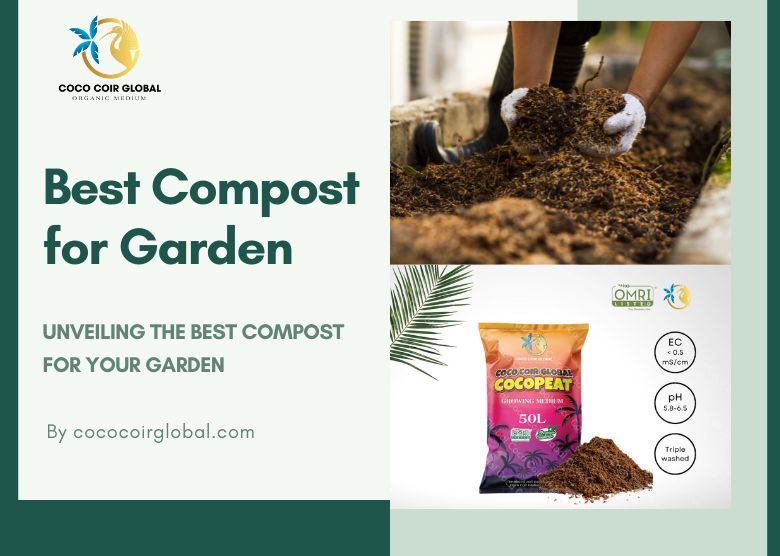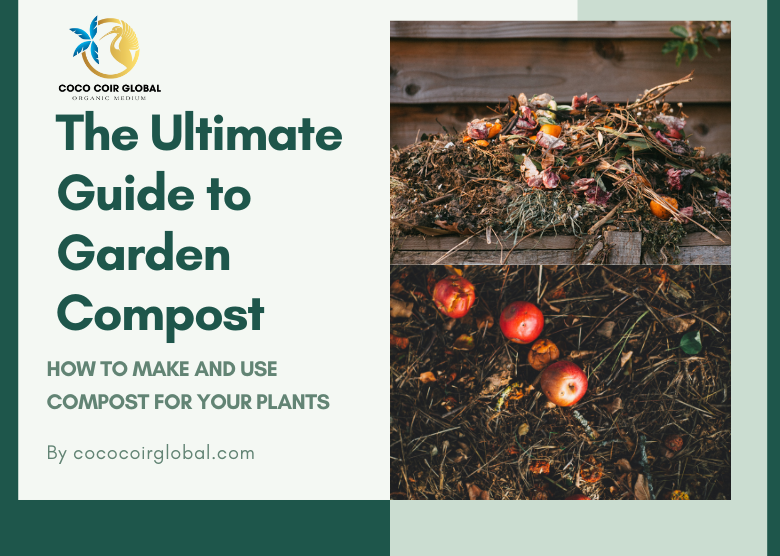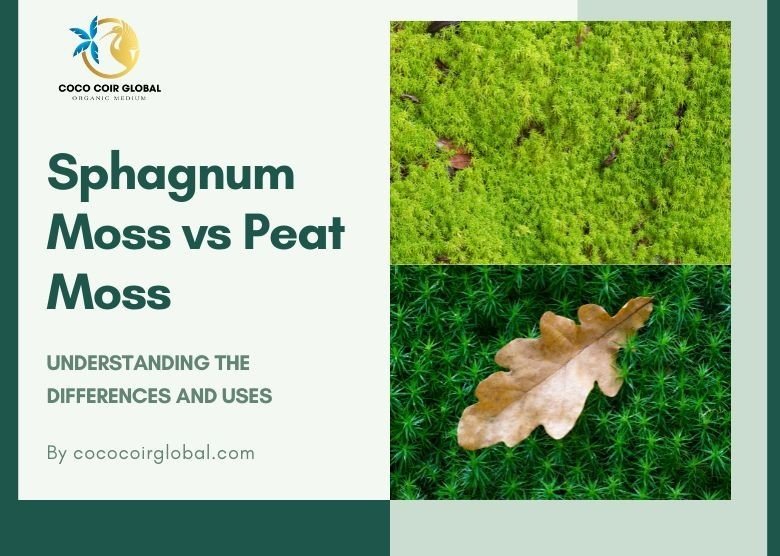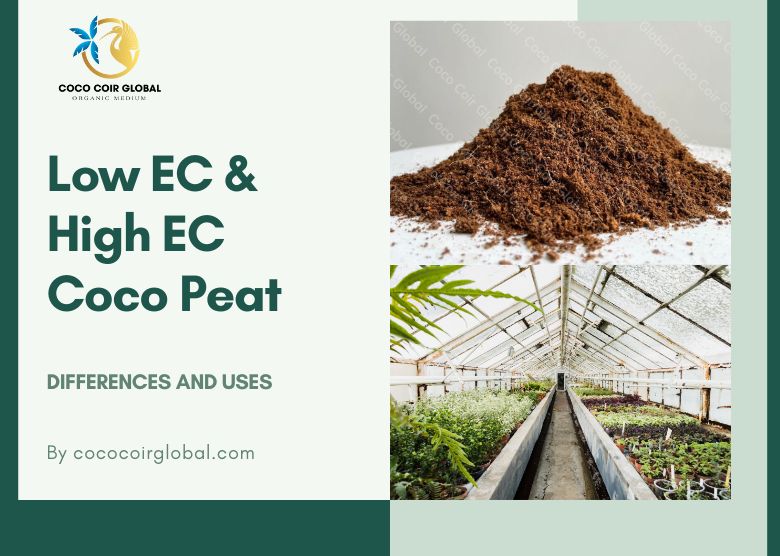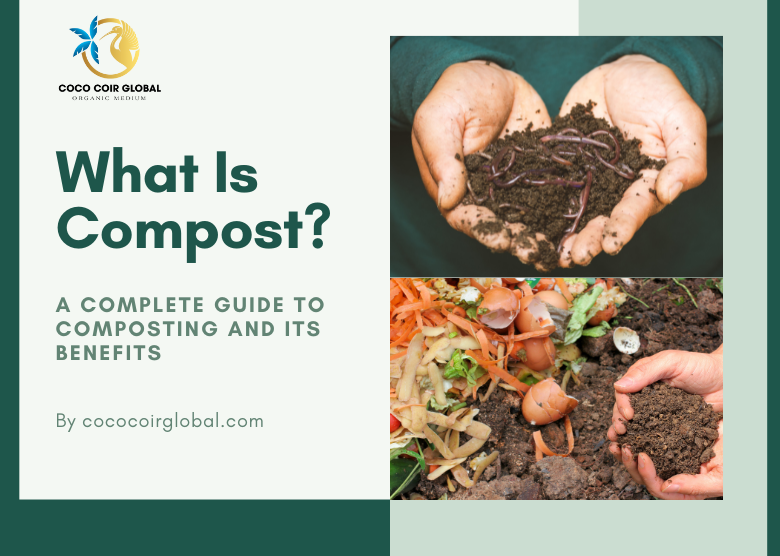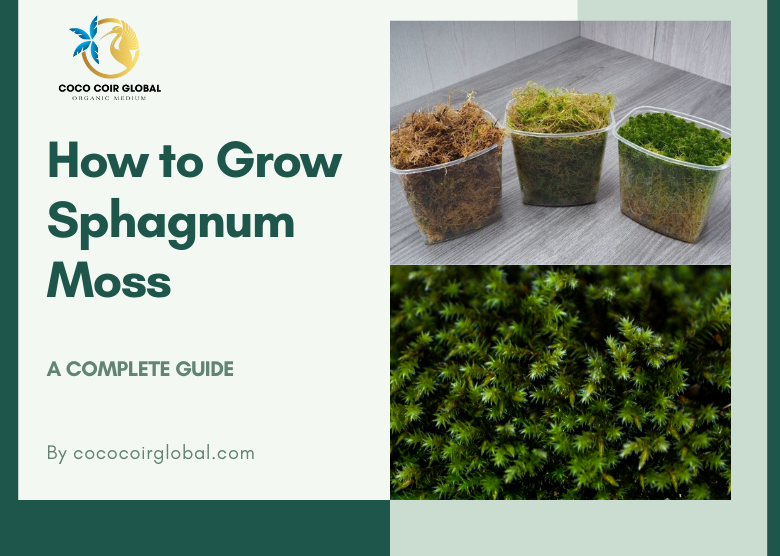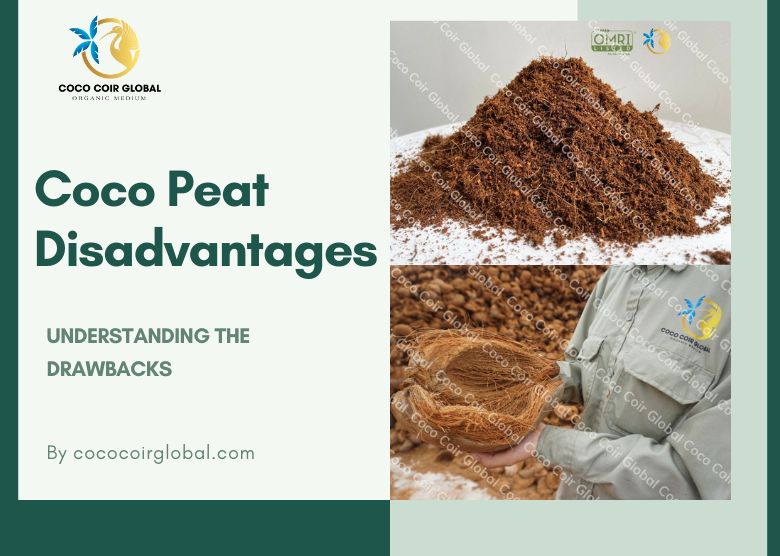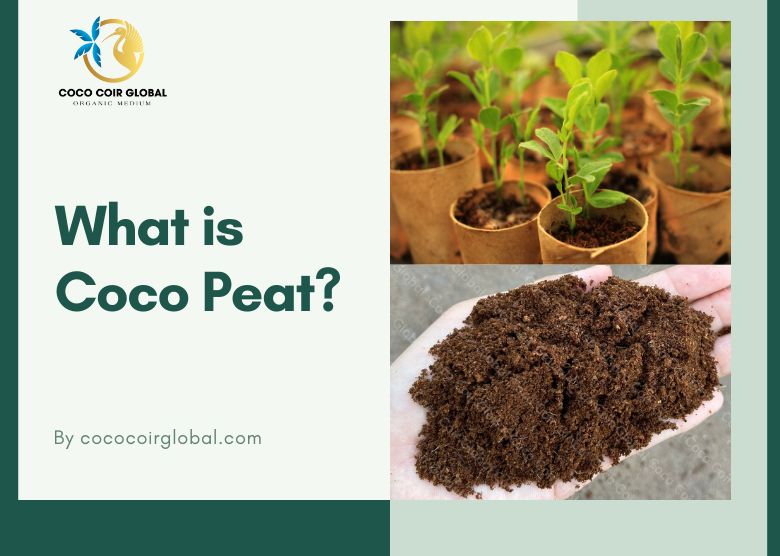What is coconut fiber?
Growers may be confused because there are many terms for coco coir, such as coconut husks, and each has the benefits of coconut coir, but each type also has its own unique characteristics. For example, coconut pith has a fine structure and the best water retention ability of the three. Coconut chips are the largest in size and provide excellent aeration for plant roots. Coconut fibers have a durable and strong structure, allowing for oxygen to penetrate to the roots. Growers should have a full comprehension of them before opting to the one that suits their plants.
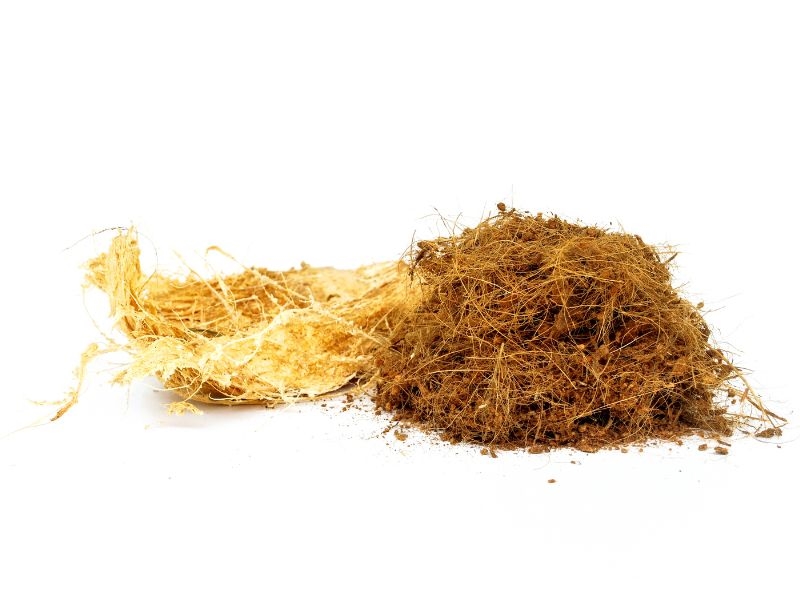
Definition and Origin of Coconut Fiber
Coconut fiber, also known as coconut fibre, is a type of natural fiber extracted from the coir layer of coconut. As you may know, after being ground/cut, coconut coir creates three components: coconut fiber, coconut pith, and coconut chips. After being correctly processed, they are produced in loose and compressed form. They are also customizable and packaged in different ways according to the customer’s demands. It is widely used in gardening as a growing medium or soil amendment, and is also applied in the handicraft industry.

See more:
Characteristics of Coconut Fiber
Renewable and sustainable: Coconut fiber is a renewable and environmentally friendly resource that is sustainable. It can be used for various applications such as gardening, agriculture, and handicrafts.
High water retention and nutrient content: Coconut fiber has high water retention and nutrient content characteristics, which means it can retain moisture for long periods of time, helping plant roots absorb necessary nutrients and reduce the need for frequent watering in gardening applications.
Improves soil aeration and drainage: When mixed with soil, coconut fiber can improve soil aeration and drainage in gardening applications due to its fibrous nature. This can create a healthy growing environment for plants and reduce the risk of waterlogging.
Pest and disease resistant: Coconut fiber has the ability to resist pests and diseases. This makes it a reasonable option for gardening and agriculture.
Neutral pH: Coconut fiber has a neutral pH and can maintain this pH. This makes it an excellent substitute for peat moss.
Reusable: Coconut fiber can be reused multiple times before needing to be replaced. This makes it a cost-effective and sustainable choice for gardening and agriculture.
Overall, coconut fiber is a versatile and practical material that has many benefits when used as a growing medium or soil amendment in gardening and agriculture.

Application of Coconut Fiber
Coconut fiber has applications beyond just agriculture and can be used in various fields. Below are some common uses of coconut fiber:
Growing medium: Coconut fiber is a popular growing medium in agriculture because it can be used as a substitute for soil and as a soil amendment to improve soil aeration and drainage, reducing the risk of waterlogging. It is also commonly used as a medium for nurseries, hydroponics and greenhouse farming.
Erosion control: Coconut fiber can be used to control soil erosion on slopes and embankments. Mats made from coconut fiber can stabilize soil, provide a vegetative cover and promote the growth of crops.
Commercial and industrial use: Coconut fiber is used in various commercial and industrial applications, such as making ropes, floor mats, planters and brushes. It is also used as a cushioning material in the automotive and furniture industries.
Animal bedding: Coconut fiber is an ideal bedding material for animals such as horses, chickens, and dogs. It has high absorbency, natural antibacterial properties, and is resistant to mold.
Overall, coconut fiber is a versatile and practical material with many applications in different fields. Its renewable nature, sustainability, and low maintenance make it an excellent alternative to traditional materials in many applications.
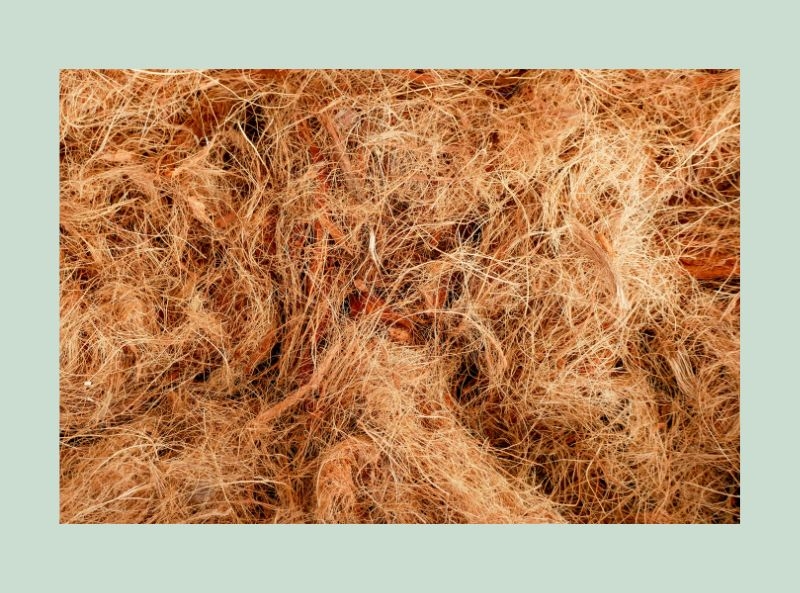
Handicraft Uses of Coconut Fiber
With its durable structure and natural color, coconut fiber can be used to create beautiful and unique handmade handicrafts such as home decor, wreath, planters, or functional items such as mats, baskets, pot coasters, and coasters.
Overall, coconut fier is a versatile material that can be used to create various types of handmade crafts. Its natural texture and color make it an ideal material for rustic and nature-inspired decor, while its durability and eco-friendliness make it a popular choice for functional household items.
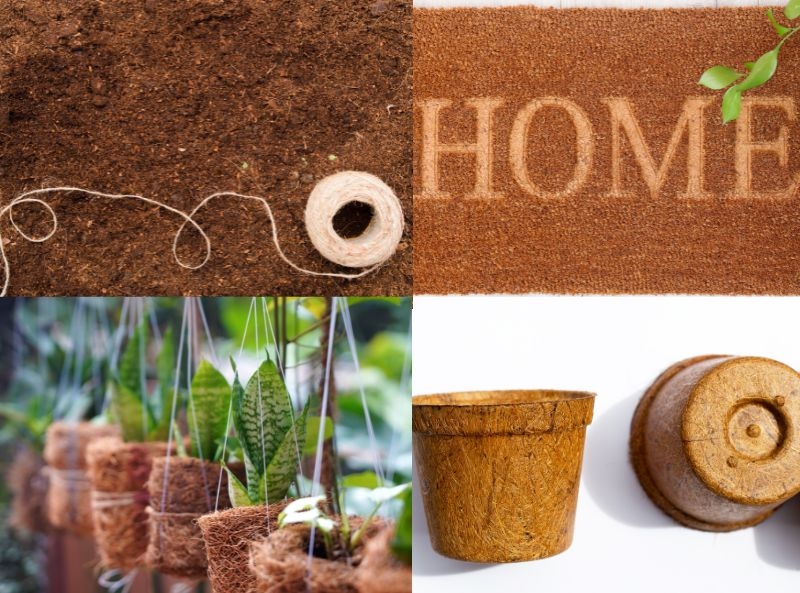
Using Coconut Fiber in Combination with Soil or Nutrients
Coconut fiber can be used as a substitute for soil and can also be used in combination with soil or nutrients to promote plant growth and improve soil health.
Soil amendment: Coconut fiber can be used as a soil amendment to improve soil structure, water retention, and nutrient absorption. It can be added to garden soil to improve drainage and prevent soil compaction.
Compost mix: Coconut fiber can be used as a component of compost mix to improve moisture retention and aeration. It can be mixed with soil and other compost mix components to create a well-draining and nutrient-rich growing medium.
Hydroponic gardening: Coconut fiber is an ideal growing medium for hydroponic gardening, particularly for plants that require high levels of moisture. It can be used in combination with nutrient solutions to provide a sterile, moisture-retentive growing medium.
Making organic fertilizer: Coconut fiber can be added to compost mix to provide a carbon-rich component that balances out nitrogen-rich green materials. It can also improve aeration and moisture retention in the compost pile.
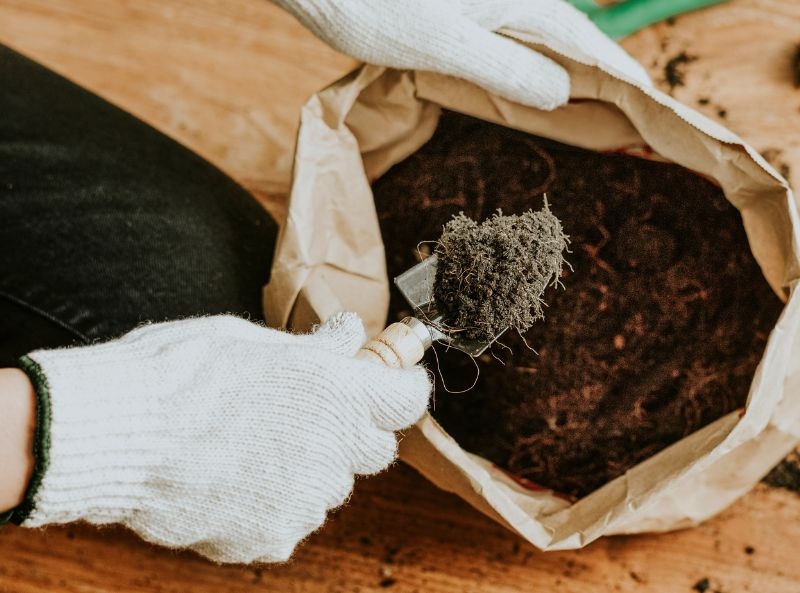
Economic Benefits of Coconut Fiber
Coconut fiber is an economically viable option as it is a renewable resource and widely available in tropical countries.
This material is readily available and relatively low-cost, yet it has excellent properties, is recyclable, and environmentally friendly, making it increasingly the top choice of growers around the world.
With the increasing demand for coconut coir, this industry is creating many new job opportunities and economic possibilities for tropical countries.

Where to Buy Coconut Fiber/Coco Fiber/Coco Fibre
Growers need to consider selecting reputable coconut fiber suppliers that have been processed and ensured high-quality products.
With high-quality and affordable products suitable for each type of crop, Coco Coir Global takes pride in being a reliable coconut coir manufacturer that accompanies growers worldwide.
See more:
- Best Coco Coir for Cannabis – Ideal Growing Medium for Cannabis
- The Benefits of Coco Coir in Gardening: Things You Need to Know
- Coir vs Soil: Differences Between Coir and Soil
- Peat Moss vs Coco Coir: Which Growing Medium Worths Opting To?
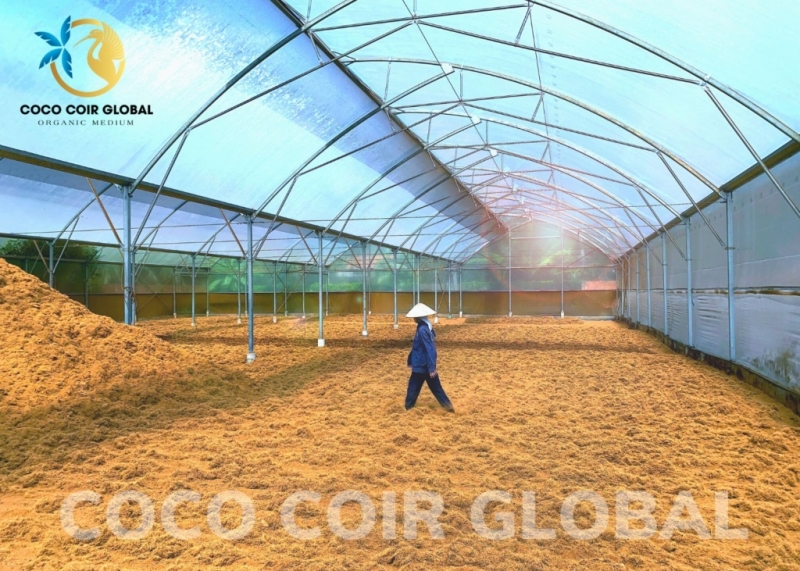
Our top priority is integrity, and we strive to deliver the best products that meet our customer’s requirements and ensure their satisfaction when using our products.









 2926
2926 








